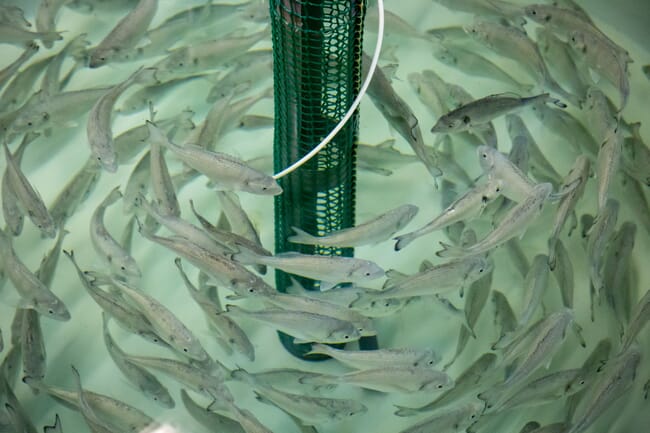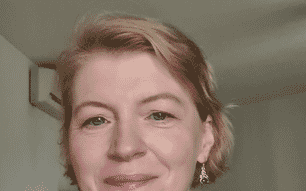
© IRTA
Background
While aquaculture in countries such as Norway, Tunisia and Egypt has been on an upward trend in the last decades, the EU sector - in particular in the Mediterranean - has stagnated.
The situation is conditioned by many factors, with technical impediments including low biological yields and shortcomings in the health management of fish farms. Moreover it is still not widely accepted by society makes it a minority option for fishmongers. Economic volatility, climate uncertainty, and disparities in the legal and governance framework throughout the Mediterranean basin pose even greater challenges for the sector.
To boost the future of this industry, the Mediterranean Aquaculture Integrated Development (MedAID) project was launched to revive the sector in 2017. This four-year project was coordinated by the Mediterranean Agronomic Institute of Zaragoza (IAMZ-CIHEAM) and Catalonia's Institute of Agrifood Research and Technology (IRTA), also involving research centres, companies and other stakeholders from 13 European and Mediterranean countries. The research scope included a study of the productive, environmental, economic and social obstacles throughout the aquaculture value chain, focusing on sea bass and gilthead sea bream, the two most widely produced species.
"We wanted to approach the problem from a multidisciplinary and holistic perspective; we started by making a global assessment to identify inefficiencies and look for common innovative solutions," explained Dolors Furones, a researcher in the IRTA's aquaculture programme and the project's scientific coordinator, in a press release. MedAID concluded in October with an event in Madeira, where the toolbox, a digital repository of all the new knowledge obtained, was presented to scientists, producers and stakeholders.
Carbon footprint
One of the great challenges for Mediterranean fish farming is to optimise resource management in order to reduce costs and, in parallel, mitigate the environmental burden of its activity.
"MedAID has looked into how the industry needs to adjust in order to improve its carbon footprint, especially in terms of logistics and feed consumption," explained Furones. Indeed, zootechnical improvements in the feeding and rearing cycle of sea bass and gilt-head bream have been the focus of a great deal of research effort. Different larval rearing conditions have been tested, as have more sustainable and functional diets that improve performance and make the fish more resilient to pathological and environmental challenges. In addition, one of the most promising avenues is genetic improvement. MedAID, together with the Performfish project, has developed a chip for genomically analysing gilt-head bream and sea bass (MedFish SNP). It can be applied to genetically characterise farmed and wild populations, a very useful information tool for establishing breeding management programmes. The technology has also made it possible to study the heritability of certain traits related to fish quality, such as the proportion of lipids in the muscles.
Animal health is the other major biological variable in fish farm productivity. Aquaculture has tended to shift towards more intensive systems, meaning the animals are more susceptible to infectious diseases. MedAID therefore carried out a risk assessment of the most important pathogens in the Mediterranean, including nervous necrosis virus (NNV), for which a new vaccine has been tested, with very encouraging results. Progress has also been made towards more coordinated management of epidemiological knowledge and strategies, and a more systematic evaluation of biosecurity measures.
Gaining social licence
"Aquaculture has problems beyond the technical field. It's not just about whether the fish grow better or worse, but also the perception of the product itself and its production," said Furones. The IRTA researcher points out a lack of public knowledge on the added value of fish farming, a practice subject to strict European regulations and, therefore, with health and environmental safety guarantees.
"It has a somewhat negative image, because of the way it has been presented and the way the fish farm facilities have been installed along the coasts," she added. In the face of such prejudice, MedAID has developed a series of practical guides and methods for countering misinformation and making consumers more aware of the farms, strengthening the sector's dialogue with the public.
In addition, MedAID has delved into the field of marketing to find out how to attract more buyers. Based on market research, the consortium has been working on the reconceptualisation of fish products to adapt them to the expectations of different niche buyers. The sector is trying to increase the variety of products on offer, with new processing and more attractive packaging that better showcases the benefits of the fish in terms of taste and quality.
Production intelligence
With a view to modernising and streamlining fish farming in the Mediterranean, the project has also focused on data collection to support strategic decision-making. For this reason, the MedAID DashBoard was created. This software allows the performance of farms to be technically compared and collects key indicators from producers, thus facilitating the identification of potential solutions.
This knowledge, achieved thanks to the cooperation of stakeholders from different backgrounds and disciplines, should give fish farming the impetus it needs to play a more significant role in the food market.
"Aquaculture is not the future, it is the present, perhaps still a little muted, but nonetheless necessary to guarantee a supply of healthy, safe, sustainable and local food," concluded Furones.




